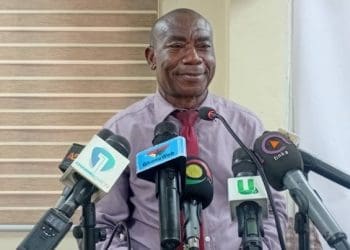The Ghana Cocoa Board (COCOBOD) has announced the producer price for cocoa beans for the 2025/2026 main crop season, which commenced on Thursday, August 7, 2025.
In a circular, COCOBOD stated that the producer price for cocoa beans will be GH₵1,549.92 per load of 30 kilogrammes for Grade I and GH₵3,229 per bag of 64 kilogrammes gross.
Meanwhile, the price for a tonne of 16 bags is GH₵51,664, the circular, signed by Dr. Ransford Abbey, Acting Chief Executive of COCOBOD, stated, adding that purchases of cocoa beans would be made at all buying centres.
Last week, Dr. Cassiel Ato Baah Forson noted that the government had maintained the Cedi equivalent of US$3,100 per tonne at GH₵16 to US$1 for several months to protect farmers against income loss.
He also announced approved margins and fees for key players in the cocoa value chain, including buyers, hauliers, warehouse operators and quality control units, in addition to the provision of jute bags for a smooth start of the 2025/26 season.
For farmers, the Finance Minister indicated that the government would provide them with free liquid and granular fertilisers, insecticides, fungicides, and flower inducers, to enable them to increase production.
Meanwhile, the newly appointed Bank of Ghana Chair in Finance and Economics at the University of Ghana, Professor Yegandi Imhotep Paul Alagidede, has said Ghana could secure lasting currency stability by partially backing the cedi with strategic resources such as gold and cocoa.
Prof. Alagidede said Ghana’s unrivalled position as Africa’s top gold producer, coupled with its global cocoa export strength, provided a solid foundation for a resource-backed monetary system.
Delivering his inaugural lecture at Legon last week, he said, “A gold-backed digital currency, monitored by the central bank and audited through blockchain technology, could stabilise the Ghanaian cedi while enhancing public trust.”
He proposed that Ghana explore a framework that draws on more than one commodity, including gold, cocoa, and even untapped bauxite reserves, to create a diversified collateral base for monetary stability.
He added that cocoa futures and forward contracts could help deepen liquidity in the agricultural sector while bolstering price stability and supporting monetary independence.












